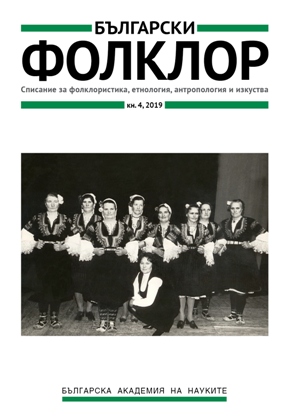The Transformation of Local Society in the 20th Century in the Light of Dancing Practice: The Case of the Kóny Verbunk
The Transformation of Local Society in the 20th Century in the Light of Dancing Practice: The Case of the Kóny Verbunk
Author(s): Ágnes EitlerSubject(s): Anthropology, Theatre, Dance, Performing Arts, Cultural history, Customs / Folklore, Music, Local History / Microhistory, Social history, Recent History (1900 till today), Cultural Anthropology / Ethnology, Culture and social structure , Social differentiation, Sociology of Culture, Politics and Identity, Identity of Collectives
Published by: Институт за етнология и фолклористика с Етнографски музей при БАН
Keywords: Hungary; traditional dance; local power relations; 20th century
Summary/Abstract: During the twentieth century, the male dance verbunk in the village of Kóny, initially performed in traditional lad societies as part of the local heritage, became a staged attraction. Between the two world wars, the Kóny verbunk was performed in the village as a representation practice of the lad societies and, as such, besides maintaining the group identity, served to indicate the spatial segregation and social differences within the local community. The decade after the Second World War brought the socio-economic transformation of local society in line with national processes. The relational network on which lad societies had been based was suppressed. In the first half of the 1950s, along with the persisting practice of the lad guilds, the verbunk became increasingly a staged spectacle for the community. At the same time, it should not be ignored that, under the supervision of the local authorities, the phenomenon shifted from the framework of church holidays to the field of political celebrations.
Journal: Български фолклор
- Issue Year: XLV/2019
- Issue No: 4
- Page Range: 381-399
- Page Count: 19
- Language: English
- Content File-PDF

